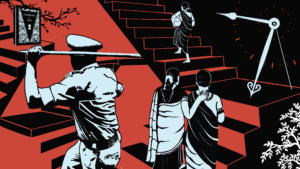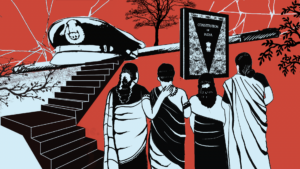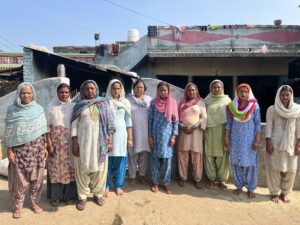Despite Law, Caste Panchayats Still Run Kangaroo Courts In Maharashtra
Jaat panchayats that routinely impose brutal and humiliating punishments on women for defying caste norms should have been a thing of the past. But they continue to operate with impunity, say activists
- Priyanka Tupe
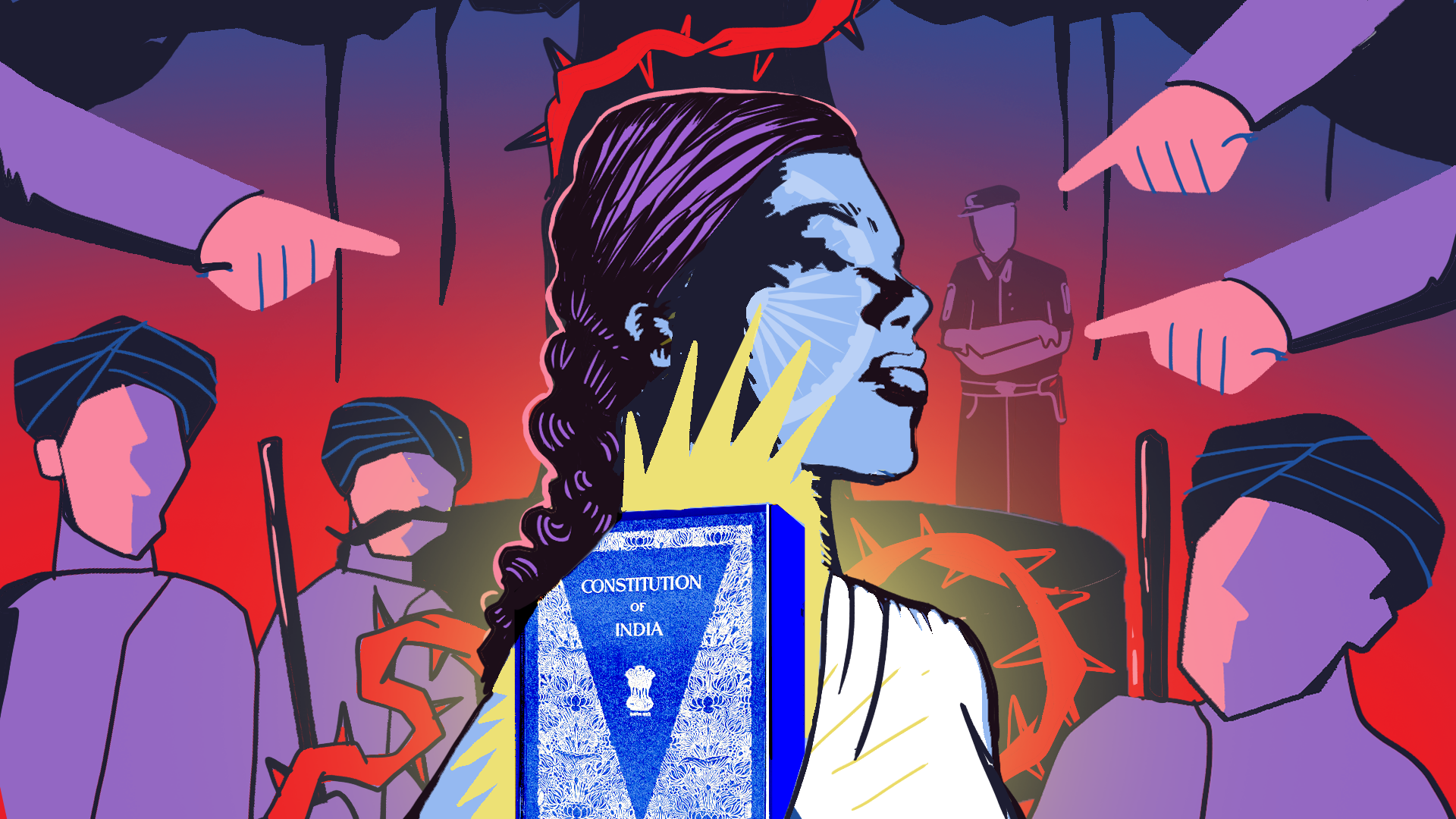
Women from the Kolhati nomadic tribe in Maharashtra are known for their skills in performing the lavani, a traditional dance form. Though their earnings supported entire families, the dancers were often shamed and criminalised by jaat panchayats or caste councils.
In these kangaroo courts run by the men of nomadic and denotified tribes (NT DNT) communities, conflicts and disputes were settled outside the legal system with community sanction. So brutal was their grip on the community that they were allowed to even impose posthumous “fines” on Kolhati women for committing the “sin” of being professional dancers.
“I have seen several instances of jaat panchayats demanding a Rs 2 fine to ‘allow’ the burial of deceased lavani dancers from the Kolhati tribe. We had to fight a long battle against women being penalised even after death,” said Arun Hirabai Jadhav, senior social activist and founder of Gramin Vikas Kendra in Jamkhed Ahmednagar. Jadhav believes this “ritual” still persists in some areas, although it is conducted in a clandestine manner.
With the The Maharashtra Protection of People from Social Boycott (Prevention and Redressal) Act of 2016 being passed seven years ago, these extra-judicial practices should have ended. But activist Sunita Bhosale tells us that it is not unusual for jaat panchayats to be conducted in the hinterland right under the nose of the police and that these councils still perpetuate extreme gender-based violence by way of “punishment”.
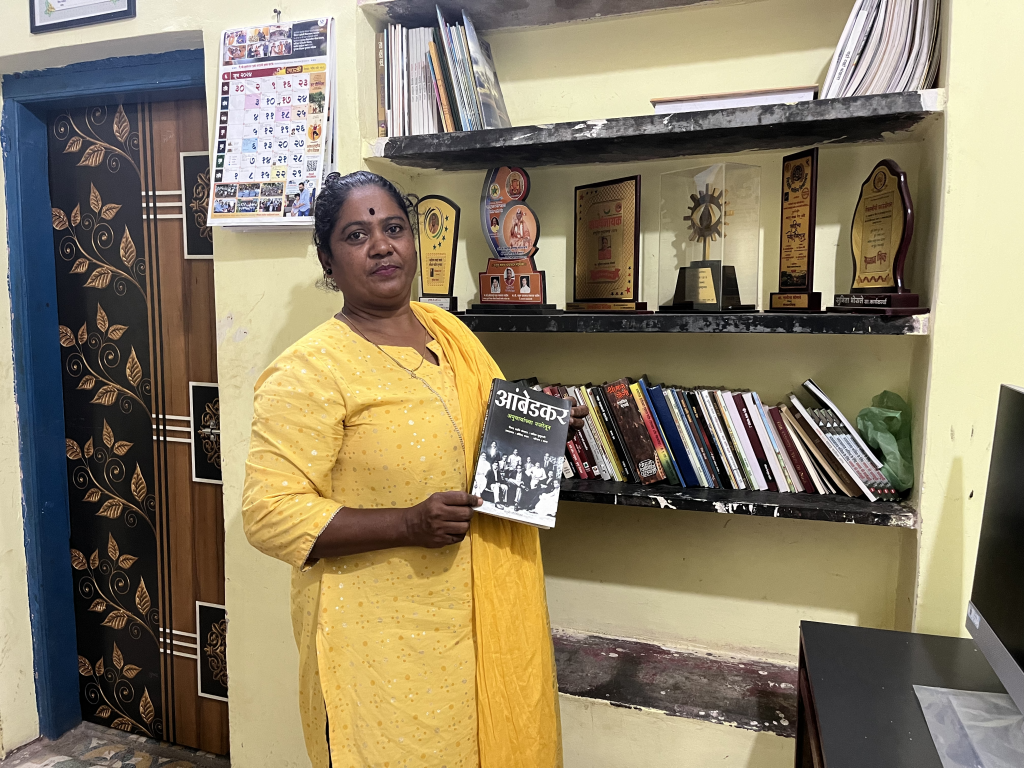
Under the Act, the assembly of jaat panchayats, and their enforcement of boycotts and other punishments are considered a violation of human rights and are, therefore, prohibited. A person who participates in such an assembly in any manner can be tried under the law. Offenders may face penalties including imprisonment for up to three years and fines up to Rs 1 lakh. The provisions of this Act complement other relevant sections of the Bharatiya Nyay Sanhita (BNS and formerly IPC) in such cases.
However, several instances of jaat panchayat’s oppressive practices against women have been reported on Maharashtra’s media platforms even after the 2017 law. These include virginity tests for brides in the Kanjarbhat community, boycott of the families of women who lodge a police complaint against domestic violence or dowry harassment in their marital homes, and the boycott of couples who enter an inter-caste or inter-tribe marriage.
There are around 40 NT DNT communities in Maharashtra and they are all governed by jaat panchayats that now reportedly operate in secrecy, instigating violence against women frequently and also humiliating men.
There are challenges that allow these councils to operate: inadequate police training, official apathy, institutional biases, collusion between the police, panchayat members and local politicians, and the fear that tribal communities have of the police, as we detail later.
Brutal Community Code
These caste panchayats are not uncommon in the rest of India. The khap panchayats of north India are also informal councils of villages who impose stringent codes especially on inter-caste and inter-clan marriages. These codes have been the basis of several killings in the name of caste pride. Despite the Supreme Court stance that these panchayats lack legal sanction, khaps continue to operate, driven by their power and legitimacy. But khaps exercise far greater social and political influence than the NT DNT caste courts of Maharashtra.
Despite the law, four mega assemblies of jaat panchayats take place in Maharashtra every year during annual yatras (fairs) at Madhi in Ahmednagar, Jejuri in Pune, Malegaon-Loha in Nanded, at Sonari-Paranda in Dharashiv (formerly Osmanabad), according to the activists of the NT-DNT community we interviewed. At these fairs, people from various social groups gather, offer prayers to their deities such as Kanifnath, socialise with friends and family, share food and also participate in jaat panchayats.
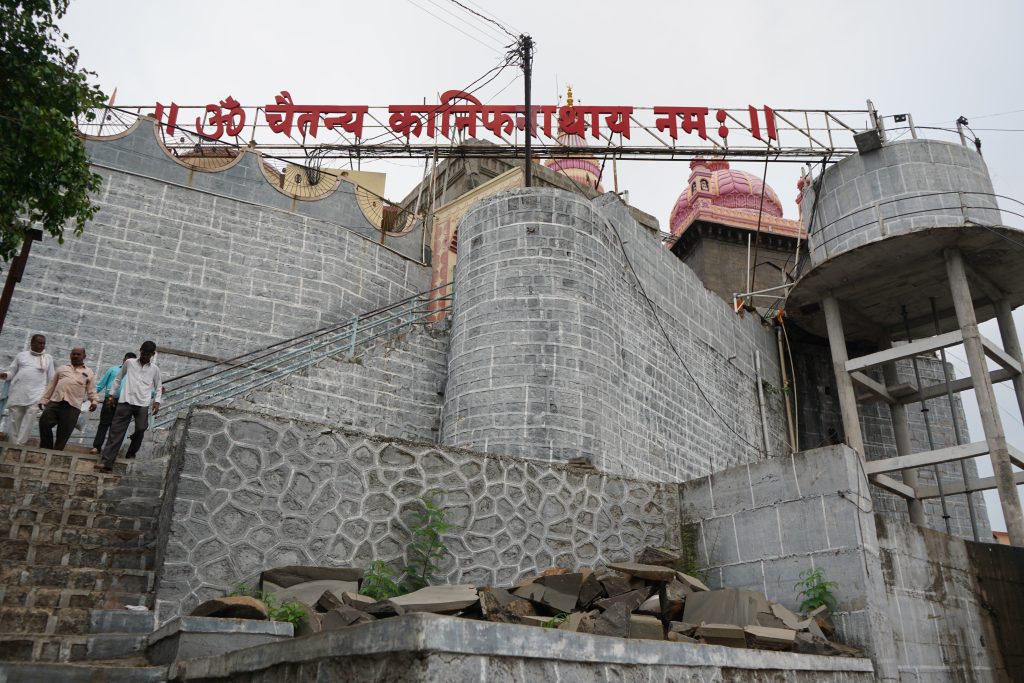
At these annual assemblies communities sit together in open spaces and the panchayats “solve” conflicts, often imposing a fee on the “guilty” even if the “crime” happened years ago. This is also a site for discussing matrimonial alliances between families, religious events in people’s homes and escalating issues relating to kadimod (divorce).
Historically, NT-DNT women have been subjected to extreme punishments by jaat panchayats: they have been asked to lick human excrement or urine, endured rape by a “jury” member in front of their husbands, and faced fines posthumously, as we said before. It was also not unusual for women to have their hands burnt for “bad character” or for opting for inter-caste marriages. Traditionally, these panchayats took place in the public or in community spaces within villages.
Jaat panchayats of the Kanjarbhat community also conduct virginity tests on their women, though secretly, said activists.
Krushna Chandgude is the convenor of the Jatpanchayat Moothmati Abhiyan, a statewide campaign initiated by the anti-superstition drive, the Andhashraddha Nirmoolan Samiti, to abolish jaat panchayats. He pointed out that while the jaat panchayat is usually seen as an NT DNT practice, it can be found in dominant communities too.
“In my experience, across Maharashtra, I have encountered jaat panchayats in every caste, including Brahmins, Marathas, and others, albeit in different forms. These councils often enforce boycotts on inter-caste marriages, and humiliate men whose daughters have married outside castes but it is less talked about. Families are known to kill daughters who are in inter-caste relationships in the name of ‘honour’, but these crimes are also linked to caste pride. Jaat panchayats in NT DNT communities have acquired notoriety because they impose humiliating and inhuman punishments, which get media attention,” said Chandgude, pointing out that the critique of jaat panchayats should not result in the vilification of the NT-DNT community.
Women from NT-DNT communities, already economically and socially marginalised and subjected to state violence, face additional layers of oppression imposed by jaat panchayats.
‘Humiliation Killed My Grandfather’
NT DNT communities In Maharashtra include the following groups among others: Vaidu, Kanjarbhat, Pardhi, Kolhati, Beard, Kaikadi, Vadar, Gor-Banjara, Ramoshi, Beldar, Bharadi, Ghisadi, Gondhali, and Nathpanthi Dawari Goswai. Their jaat councils see themselves as the keepers of familial and social practices and they adjudicate in issues relating to marriage, divorces, domestic violence, and religious practices as well, as we said earlier.
It is not just the woman but her entire family that is penalised by these panchayats, with demands for money, alcohol and mutton as penalty. These fines can range from Rs. 50,000 to Rs. 10,00,000, according to Chandgude.
“Many impoverished families, unable to afford these fines, resort to borrowing money from private lenders or even from the panchayat members themselves, who charge exorbitant interest rates of up to 40% per month,” said Chandgude.
Families that cannot afford to pay the fines imposed by jaat panchayats face severe social ostracism. They are also excluded from social and religious community functions, such as marriages and annual events. This exclusion extends to the cultural practice of sharing paan-supari, a gesture of solidarity among men in Maharashtra.
Arun Jadhav recalled that his maternal uncle was once ordered to lift shoes with his mouth. He was being punished for Jaddhav’s protests against jaat panchayats. “My grandfather was so humiliated by this public loss of dignity he suffered a heart attack and died the same day,” said Jadhav.
Perpetuating Gender Injustice
Lata Shinde, 29 hails from the Nathpanthi Davari Gosavi tribe, in Shrigonda from Ahmednagar district. In 2017, the same year a law was enacted against jaat panchayats, she was unjustly accused of her husband’s “death”.
“My husband went missing and the jaat panchayat blamed me for his disappearance. I knew he was alive and around somewhere. They wanted me to be punished but when the case reached the police, I managed to persuade the officers, bought myself some time, and located my husband. After I brought him back home, the panchayat waived the fine they had imposed on me,” she recounted.
Fifteen years ago, Dwarka Pawar from a Pardhi tribe endured terrible punishment for what the caste council called a “loose character”. She was eking out a living in Saradwadi village of Ahmednagar selling liquor for her “offence”, the panchayat placed a hot axe on her hands while forbidding her from vocalising her agony.
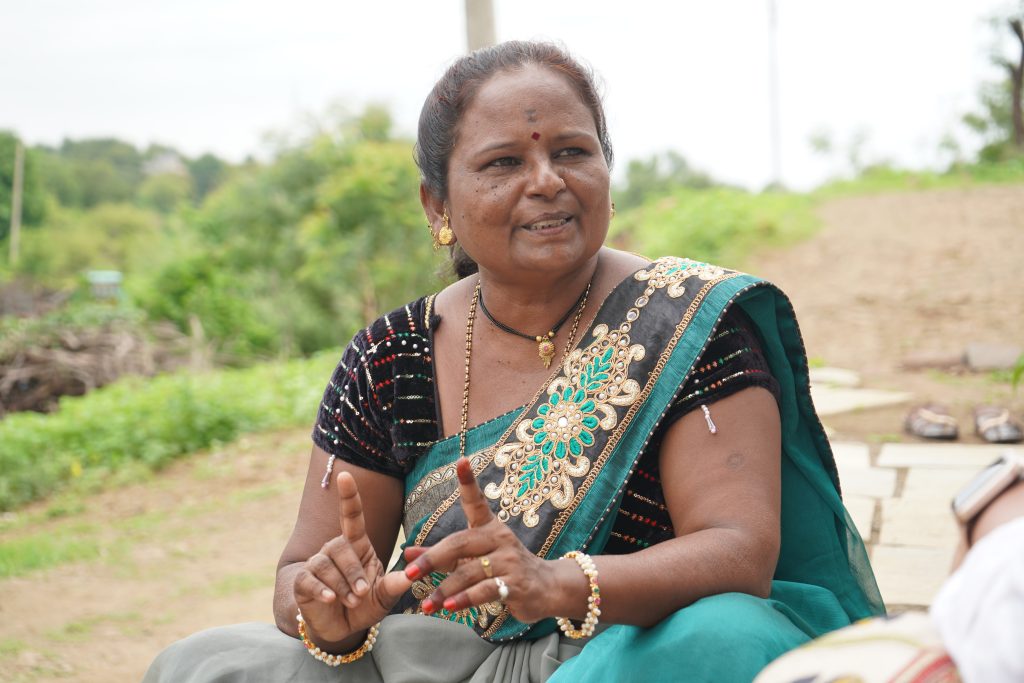
Dwarka’s perspective began to change when she connected with the Gramin Vikas Kendra where she learnt about gender equality and her rights under the Constitution. Empowered by this, she resisted the jaat panchayat’s verdicts on multiple occasions, becoming a source of inspiration for other Pardhi women.
“Learning about Dr Babasaheb Ambedkar, and our Constitution gave me immense power to speak against all kinds of injustices,” said Pawar.
When women from the NT-DNT community assert their rights and speak out, they also face severe social backlash, including ostracism and defamation, said Pardhi activist Sunita Bhosale.
In The Guise Of Protection
“Women are seen as easy targets, so much so that panchayat members often implicate innocent women falsely so they can demand sexual favours by way of ‘punishment’. No woman would consent to this so finally these orders become rape and sexuals abuse,” said Lata Shinde an activist from an NT DNT community and a survivor of jaat panchayat tyranny.
In some instances where men are caught in police cases, the women of his family are abused by panch members under the guise of “protection”, we found in multiple interviews with women from the NT-DNT community in Pune and Ahmednagar. “They say: ‘Instead of other men raping or harassing you, just please me and be with me like my wife’ and we will protect you,” said a woman who did not wish to be named.
Jaat panchayats are often involved in arranging child marriages, in some cases even before a woman’s birth. They also force women to return to their parental homes in the cases of kadimod (divorce), usually initiated by the husband so he can marry again. In their parental homes, the women have to deal with neglect and loss of dignity.
Lata Shinde, who has interviewed approximately 200 such women in Shrigonda taluka, Ahmednagar, said this practice is highly gendered. “Do the jaat panchayats even understand the impact of their decisions on these destitute women? They are not valued in their marital homes or natal homes. Back with their parents, severe restrictions are imposed on their mobility, and they are denied the right to remarry.” said Shinde.
Resistance Comes With Risks
Activists from the NT-DNT community who have been at the forefront of resistance against jaat panchayats have faced severe backlash. Like Arun Jadhav, they are often threatened, attacked and women activists have been defamed.
Sunita Bhosale, social activist from the Pardhi community from Shirur in Pune said jaat panchayats hold feudal, misogynistic, and casteist attitudes. “When I began reading about Babasaheb Ambedkar and his work for women’s rights, and started greeting people with ‘Jai Bhim,’ it didn’t sit well with the men in my community. They responded by spreading false rumours about me, alleging that I was involved with a man from the Mahar community and making derogatory comments,” said Bhosale. She added that she was threatened multiple times by the jaat panchayat for her defiance.
In 2018, the day after their wedding, Vivek Tamyachikar and Aishwarya Bhaat were asked to present the sheet from the marital bed to the panchayat as was the custom among the Kanjarbhat community. A stained sheet is meant to establish the bride’s virginity. If this “proof” is lacking a hefty fine of sometimes lakhs is imposed on the woman and she is sent back to her maternal home.
The couple refused to participate in this “test” and were ostracised for this. This boycott extended to Vivek being barred from attending a relative’s funeral and Aishwarya being excluded from a garba dance event during Navratri festival in Kalyan in 2019.
In response, Tamyachikar launched a social media campaign, ‘Stop- the V ritual’ to raise awareness about these practices. He also expanded the campaign by meeting with social workers and legislators in Maharashtra, including Neelam Gorhe, then deputy speaker of the Vidhan Parishad. Gorhe facilitated discussions with government officials, civil society, and social activists in 2019 and endorsed the campaign.
Legal Action Against Jaat Panchayats
In 2013, the Andhashraddha Nirmoolan Samiti, an organisation dedicated to combating superstitions and founded by the late Narendra Dabholkar, launched the Jaat Panchayat Moothmati Abhiyan in Maharashtra. Chandgude, a prominent activist of the initiative, discovered numerous cases of abuse by jaat panchayats that same year. He spearheaded a statewide campaign, with the support of other Samiti activists to engage with NT-DNT communities across the state. The campaign aimed to foster dialogue among these communities, the police, social activists, and civil society.
Chandgude and his team began assisting the police in filing cases related to the boycotts and severe punishments inflicted by jaat panchayats. However, they soon realised that without the establishment of a specific legal framework, their efforts were likely to be futile.
“We’ve leveraged our extensive network in Maharashtra to assist the police in filing cases and apprehending those involved in panchayat-led abuse. However, the police faced significant challenges due to the absence of a specific law at that time, struggling to apply the appropriate sections of the IPC. In response, the Andhashraddha Nirmoolan Samiti drafted a robust bill, which was subsequently passed by both houses of the assembly and enacted into law,” Chandgude explained.
While the law itself is a significant step forward, it does not have any provisions for the rehabilitation of victimised women and their families. There are also structural issues within the policing system that impede the effective implementation of the law.
“This act is indeed a powerful tool, but for it to be fully effective, we need not only legislative amendments but also improvement in policing and comprehensive training for officers on this issue,” said Chandgude.
Also, only a handful of jaat panchayats from the Vaidu and Nandiwale communities have been dissolved by the communities themselves. Activists such as Durga Gudilu and Ranjana Pagar-Gawande have been instrumental in this process, successfully persuading both the caste councils and the women in these communities to support the dissolution despite challenges.
Nexus Between Police, Panch, And Politicians
Pardhi activist Bhosale highlighted the power nexus that holds up jaat panchayats. “While jaat panchayats no longer operate openly due to the law, they continue to convene at community gatherings or during social events like weddings. The police surveils our community 24/7 for other reasons, so they must be aware of this. They know when and where jaat panchayats assemble, but they refrain from intervening because they are bribed by them,” alleged Bhosale.
She also said that khabaris (informers) from the NT-DNT community provide the police with information but the latter avoid stepping in.
Local politicians and MLAs often turn a blind eye to these issues because of the clout wielded by the panchayats and the electoral support they provide during elections, we are told. “Even if these powerful panchs are booked by the police in some cases, they ‘manage’ the case with money/bribes,” said Bhosale
Jaat panchayats are characterised by a dynastic and feudal structure: power is concentrated in a few influential families and this authority is inevitably passed down to the next generation of men in these families.
Legal Complexity
Police are often not adequately trained to file cases under the correct sections of the law. In addition to sections from The Maharashtra Protection of People from Social Boycott (Prevention and Redressal) Act, other sections from the Bhartiya Nyay Sanhita (formerly IPC) should be added in the FIRs, said activists.
Investigating cases under the Maharashtra Social Boycott Act does not prevent police from applying other relevant sections from the Bhartiya Nyay Sanhita (formerly Indian Penal Code) relating to gender-based violence, they added. For instance, the police hesitate to use the former IPC section 354, which deals with outraging a woman’s modesty, against members of jaat panchayats.
As these are compoundable offences, the victim and the accused are also allowed under the law to reach a compromise, so the trial can be discontinued. The law requires that the victim be heard by the court regarding the severity of the “punishment”. But women are often pressured by families and their community to be “kind” to offenders.
Why Women Hesitate To Use The Law
NT-DNT women hesitate to visit the police stations and file complaints because of the history of police brutality and intimidation against them. Women in these communities often feel unsafe and hesitant to report cases of domestic or sexual violence.
“I used to be so scared of the police as a child that I would wet my pants when I saw them. I never saw them as protectors because we always saw them beating Pardhis, and implicating them in fabricated theft and robbery cases. Our women have been raped by police itself. How can we seek protection from them?” said Sunita Bhosale.
Institutional bias and the criminalisation of the community further block their access to legal and constitutional justice.
“Police never intervene in crimes against the NT-DNT community, even when a lynching occurs right before them. When our women approach the police, their experiences are dismissed, and they are blamed for the injustices they face,” said Jadhav. “The police do not respect us or consider us citizens. Our people are illiterate but they don’t explain the legal process to us — how to file a complaint or an FIR. Where do we go for justice then?” he added.
We believe everyone deserves equal access to accurate news. Support from our readers enables us to keep our journalism open and free for everyone, all over the world.
